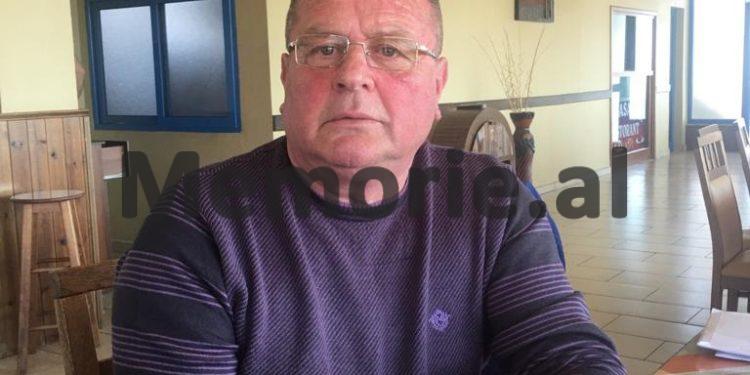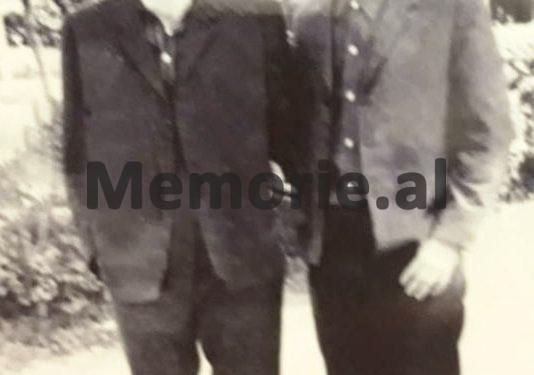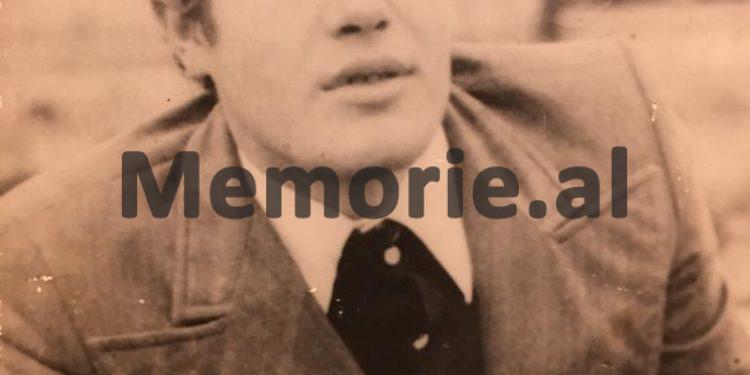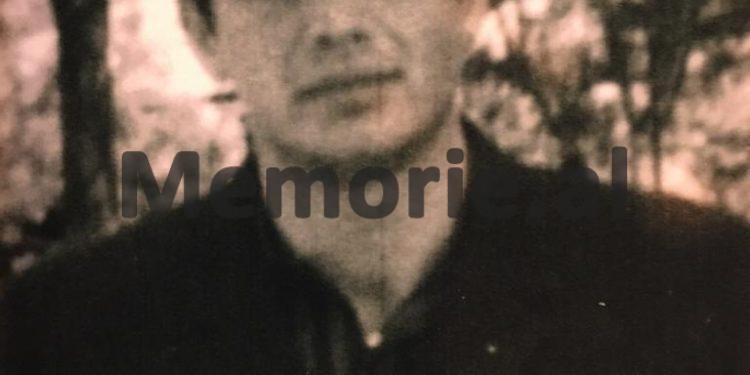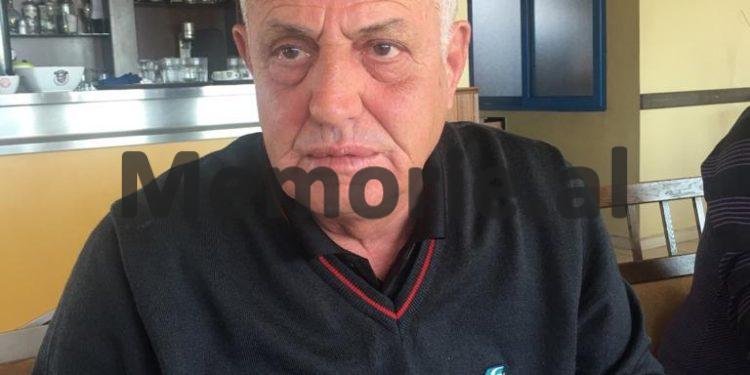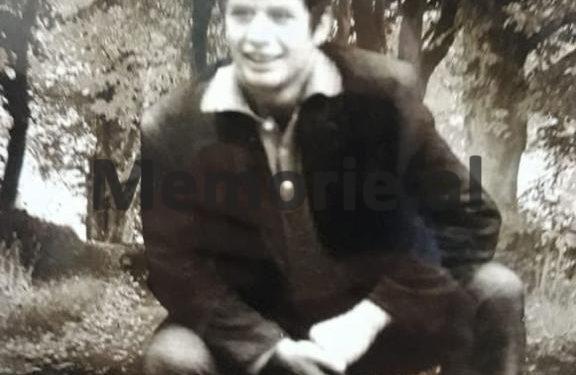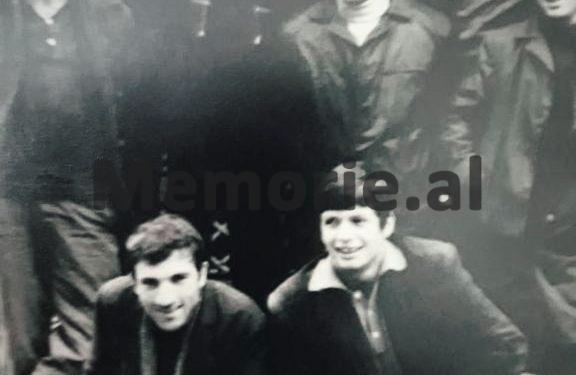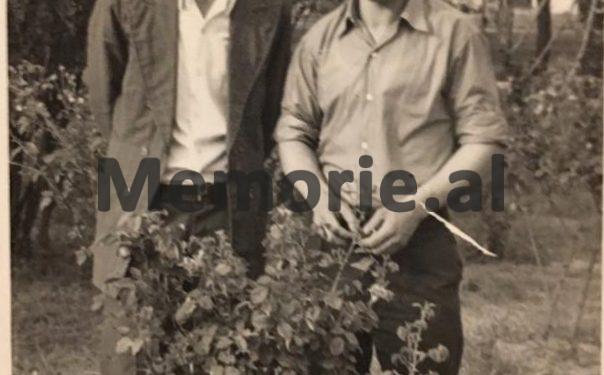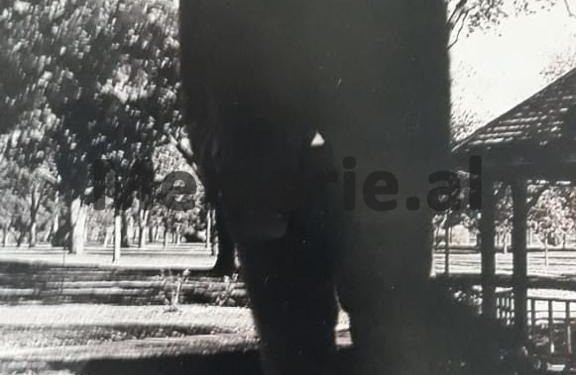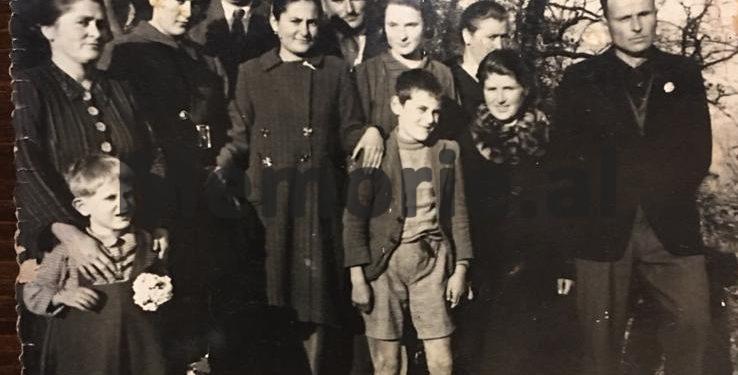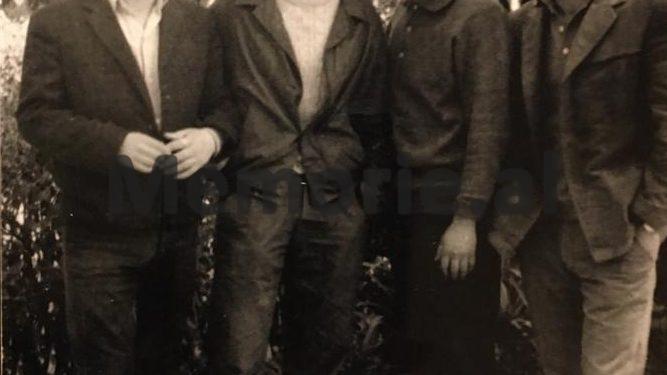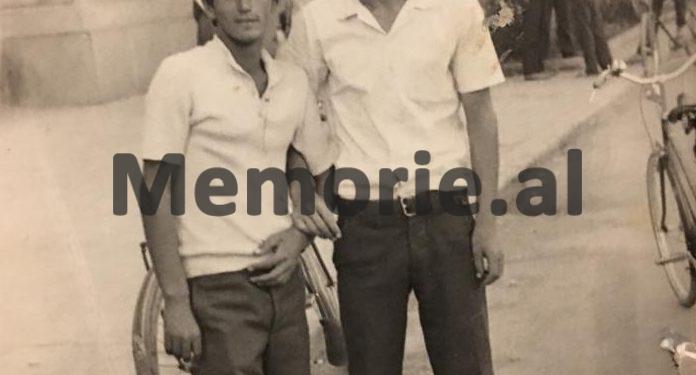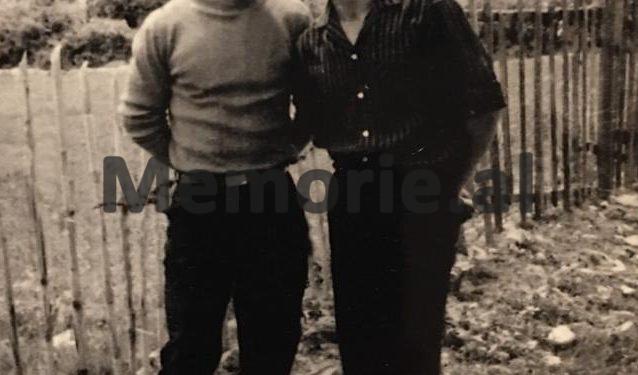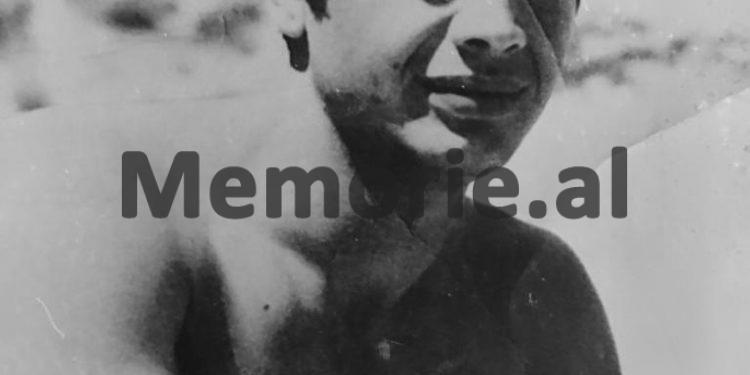Dashnor Kaloçi
Memorie.al publishes the unknown testimony of Myfi Tukić from the city of Shkodra, about the event of January 23, 1983, where two young men, Fatmir Gusha and Sali Breshni, were killed in the center of the city of Shkodra, who had fought for eight hours against the police, army and reserve forces, as well as the special forces (Department 326), coming from Tirana, they were shot with grenades, after previously a small tank of the Shkodra Military Division had destroyed the house where they they were stuck there in the alley behind the “Luigj Gurakuqi” Pedagogical Institute. Myfit Tukiçi, not only was one of Caf Susta’s closest friends, but he is the man who accompanied him that cold January day in 1983 all day and was the last to part with him, after that event where he was going to be killed, which Cafi had warned that afternoon with…?
“To tell the truth, it seemed that Cafi had decided to take revenge for what had happened to his house, where one in the center of Shkodra had been taken away and the one in exile in Hajmel that was burned after the conflict with the police forces, in addition to conversations about the work he wanted to start, he also talked to me about the problem of the house, often telling me: “Did you see Myfit, how the house was made”?! In the same way, two or three times that day he said to me “You have once again reminded me of the zan and the chrism of Xhevdet Mustafa, you will remember me”. When he said those words to me once, our friend, Ndoc Toma, was also present, but I didn’t think about what Cafi meant by those words, and I neither affirmed nor contradicted him. Speaking and testifying for the first time for Memorie.al, Myfit Tukiçi from the city of Shkodra, who tells the whole sensational story of the event of January 23, 1983, where two young men from that city, Fatmir Gusha and Sali Breshni , fought for about 8 hours against the police, army and reserve forces, as well as the special forces (Department 326) coming from Tirana, they were killed by the intervention of the tank that destroyed the house in Hysaj, where they were stuck in an alley behind “Luigj Gurakuqi” Pedagogical Institute in the center of Shkodra. Mufti Tukiçi, not only was one of Fatmir Gusha’s closest friends, but he is the man who accompanied him on that cold January day of 1983 throughout the day and was the last to part with him. This interview with Mr. Tukiçi, comes after two interviews that Memorie.al has published these days, with the former head of the Internal Affairs Branch of Shkodra, Përparim Xhoxhaj, and the one with Mr. Mit’hat Gusha, one of Fatmir’s brothers, which we have realized and are publishing in the context of clarifying that event that for 37 years in a row was kept in complete silence.
Mr. Myfit, when did you know Fatmir Gusha, or as he was otherwise known by society in Shkodër, as “Caf Susta”?
We met Caf in childhood and have been close friends since then, we were also neighbors as a family in the Rus neighborhood in the center of Shkodra. Likewise, apart from that, we were together in prison in the Bulqiza camp, as Cafi was sentenced before me and I found him there in the camp in 1980 when I was sentenced.
Why was Cafi punished?
Cafi was sentenced to five years in prison for “disturbance of public peace and opposition to the police forces”, I also remember the judge who sentenced him, who was Haki Kraja.
Specifically, what did Cafi oppose the police forces for?
About an event that happened in Kafe te Madhe, where someone broke a bottle and when the police came and arrested him, because there was a big noise, Cafi came out as God, saying that he had broken it and argued with the police. That was the whole incident for which he was convicted, but it must be said that Cafi did not want to see the police with his eyes, because he identified with them the power of that time.
After your release from prison, did you resume your friendship?
We definitely continued our friendship and I remember that when Cafi was released from prison in the last days of December 1982, (after the amnesty that was granted to him for a few months, after he had almost served the entire sentence of five years), I when I went to the Internal Branch, I took him by bicycle and we went to the village of Hajmel, where his family was interned at that time.
Who did you find from Cafi’s family when you went to Hajmel?
There we found only Caf’s mother, Havana, with her little grandson, since all the others were in prisons and exiles, after the incident of the burning of the house by his brother, Hydayet.
Why, at the time you went with Caf to Hajmel, did the event of burning down the house take place?
Yes, it had happened, when we went to Cafi and saw the house burned down without any of the family, (after they had been exiled and imprisoned), he lost his brain and went into an almost depressed state of mind from what he had seen.
How long did you stay in that house and where did you go afterwards?
That night we stayed in that burnt house all night, drinking from a glass of brandy with pickles, which was brought to us by Shan Leka, a friend of ours who was also interned there.
Did Shani stay with you?
We definitely had Shani as a good friend.
What conversations did you have, do you remember anything, e.g. did you speak against the regime of that time?
We had normal conversations, but Cafi was only physically there with us, not mentally at all. I said that he was in a terribly depressing state, they had punished his brother, Hydayet, and sealed off the house in that state. That night we didn’t speak openly against the regime, not because we were scared and afraid, we were close friends, but I didn’t want to upset Cafi more. So, I didn’t want to add more to the milk that was suffocating him.
What about the next day, what did you do, where did you go?
The next day we went to Shkodër and met Cafi’s eldest son, 12-year-old Bardhi. One cried and the other cried, I don’t know how to explain the state of those father and son that day. And after we spent the whole day together, we parted from dinner, Cafi went to sleep at the house of his brother, Fahri, who had a house in the neighborhood, Perash, on the first floor of a prefabricated building. I stayed at Fahri’s house for a while and then I left and went to my house.
When did you meet Cafi again before the incident of January 23?
We were together on January 23, 1983 all day and we parted shortly before he went to take the weapons with Sali Breshni and what happened what happened
How do you remember the day of January 23, 1983, where did you stay and what did you talk to each other?
That day, as usual, we went out and met other friends on the street, but we didn’t leave each other for a minute until the afternoon, when we went to a bar, “Pasticeri”, which was located near the house in Parruca. We stayed there for a long time, talking and drinking coffee and a glass of vermouth, because there was no other drink.
Was Cafi speaking against the regime, or more precisely about some of his revenge for what had happened to his family, such as the burning of the house and the imprisonment and exile of his brothers?
I remember very well the conversations we had with each other, that was our last meeting, as I said, when we parted, Cafi went to get weapons with Sali Breshi and the incident happened where they were killed. Almost all the time we spent with Caf that day, his main problem was starting a job and supporting his family, as he had a wife and three children, the eldest of whom was 13-year-old Bardhi. So, all the conversations we had that day revolved around the problem of the work he wanted to start.
Did he tell you any other words about the house that had been burned, such as for any revenge or related to the weapons he was going to get, did he tell you…?
To tell the truth, it seemed that Cafi had decided to take revenge, since in addition to talking about the work he wanted to start, he also talked to me about the problem of the house, often saying to me: “Did you see Myfi, how was the house done?”! In the same way, two or three times that day he said to me “You have once again reminded me of the zan and the chrism of Xhevdet Mustafa, you will remember me”. When he said those words to me once, our friend, Ndoc Toma, was also present, but I didn’t think about what he meant with those words and I neither affirmed nor contradicted him for what he was telling me.
That’s all he told you, and he didn’t mention weapons…?
He never said a word to me, nor did I know anything about the weapon work he was going to take, that I would not have approved it in any way and I would not have let him do that action, I would not have separated from him.
When did you break up that day with Caf?
We parted there from six o’clock in the afternoon when it was dark and I ran home.
When did you learn about what had happened to your close friend, Cafin?
Around 20:30 in the evening if I’m not mistaken, when we heard the gunshots and the loud noise that was made, we went out to the window and to the backyard, you ask me what are those shots?
And what did they tell you, or what was said about what was happening?
People did not say anything, but what was noticed was that: “Saboteurs had entered from Yugoslavia and the police had surrounded them and were fighting with them”. We didn’t find out anything else, nor who were those who were surrounded and fighting against the police, no name was known.
When did you find out that your friend, Cafi, was there?
From half past one in the night, Ismet Priku, chairman of the Executive Committee, if I’m not mistaken, he was at that time, came to my house (in the Russian quarter, or “Partizani” as they later named it), and together with him, there was also an investigator by the name of Fatos Shano, as well as Zija Vuçaj, and several others, all dressed as chorister, but I could distinguish them, plus it was night, but as I said, they were dressed as chorister.
What did they tell you?
They came with all the noise shouting: “Open the door” and surrounded my house. When I went out into the corridor, Fatos Shano, who had stopped at the door of the courtyard, said to me: “Where have you been today?” I told him the truth, telling him where and with whom I had been and said: “Should I wear…”?
What did they say to you after that?
They told me: “No, no, we needed it, we’ll come back.” And Fatosi continued: “What did Cafi tell you?” And I explained to him that he had a problem with the thread of work and nothing else he had told me.
Why did they come to you?
Not only because we were close friends, but apparently, they had been following and surveilling us all day and remembered that I am there with Caf, until they were killed, no one knew who else was there with him.
You personally, when did you learn what had happened to Caf and his friend, Sali Breshni?
The next morning when I left the house, I met Cafi’s brothers near the Executive Committee, I found out everything had happened.
After that night, did they call you again?
No, after that night they didn’t call me or bother me anymore.
Tukiçi, thank you for this interview.
Thank you to you.




